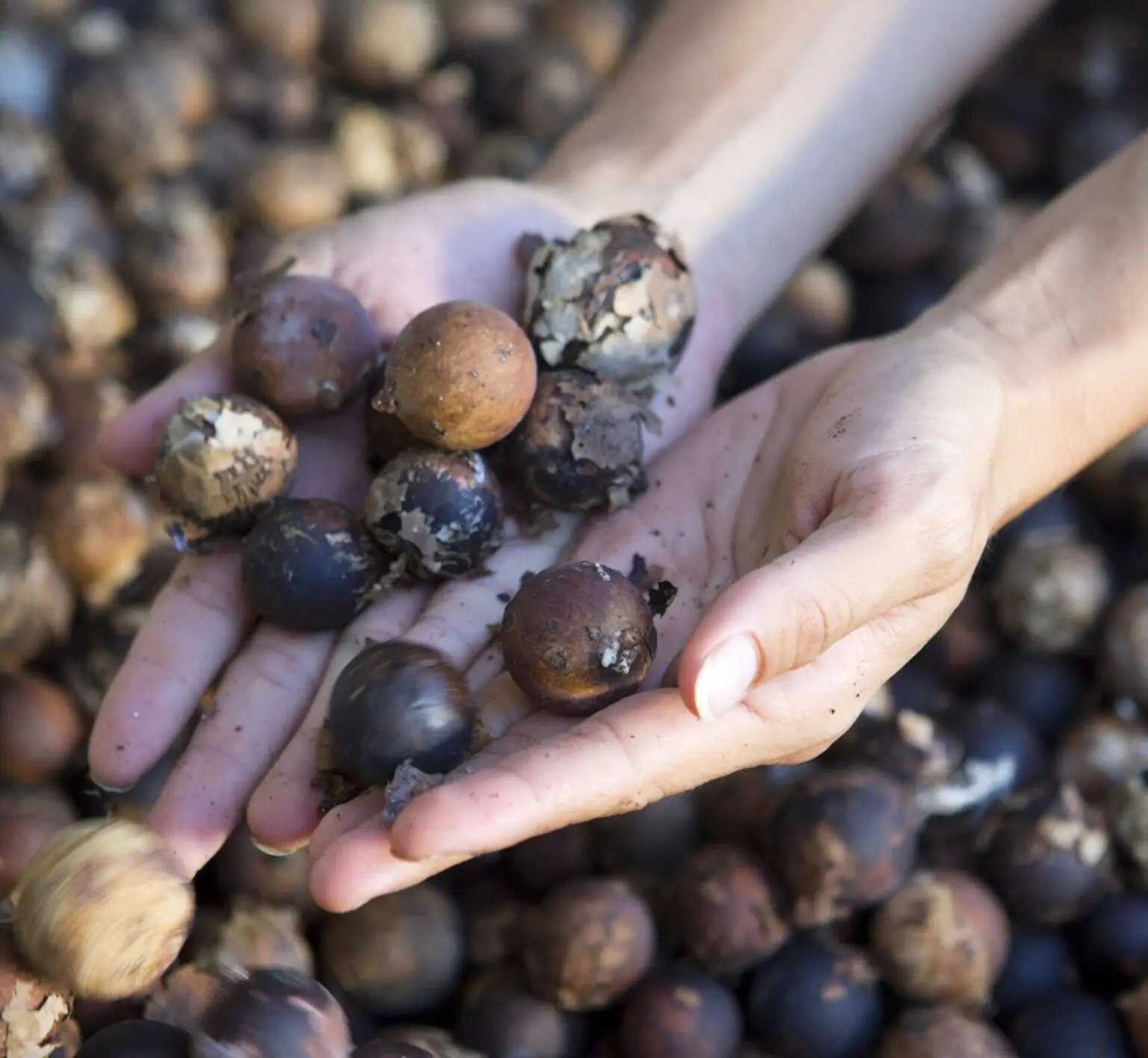Monoi de Tahiti and Tamanu oil are two exotic oils that are derived from plants native to Polynesia. These oils have been used for centuries by Polynesian societies for their therapeutic properties and cultural significance. We will explore the history and cultural significance of Monoi de Tahiti and Tamanu oil.
Overall, both Monoi de Tahiti and Tamanu oil have unique properties and benefits, and they are both highly valued in Polynesian cultures and in the beauty industry. At TAHITI OIL FACTORY, we take great pride in using natural and traditional ingredients in our products. By incorporating Monoi de Tahiti and Tamanu oil into our products, we are able to offer our customers high-quality, natural ingredients with a rich cultural history. We believe in the power of nature and traditional knowledge, and strive to create products that reflect these values.
Steeping Tahitian gardenias, also known as Tiare flowers, in coconut oil produces Monoi de Tahiti, a highly sought-after oil in the beauty industry. Its moisturizing properties and rich antioxidant content make it a popular ingredient in many skincare and hair care products. However, Monoi de Tahiti holds much deeper cultural significance for the Polynesian people.
Ancient Polynesians used Monoi de Tahiti for medicinal purposes and as a natural perfume. The scent of Tiare flowers was believed to possess calming properties and was used in traditional healing practices. The oil also served as a moisturizer for the skin and hair, protecting them from the harsh tropical climate.
Today, Monoi de Tahiti continues to hold cultural significance in Polynesian society. The oil is used in traditional ceremonies and celebrations such as weddings and funerals. It is also utilized in massage and healing practices and holds spiritual importance.
Polynesian societies have been relying on Tamanu oil for centuries, which is derived from the Tamanu tree found in Polynesia and other parts of the South Pacific. The oil is renowned for its antimicrobial, anti-inflammatory, and analgesic properties, which have made it a go-to remedy for various skin issues.
Tamanu oil holds a significant cultural value in Polynesian culture due to its spiritual and mystical properties. The locals highly value it in traditional healing practices, and believe that it has the power to ward off evil spirits. Moreover, Tamanu oil is an essential component of Polynesian tattooing, where it is applied before and after the tattooing process to facilitate healing and prevent infection.
Tamanu oil’s history of use is well-documented. Historical accounts, such as Captain James Cook’s journals, demonstrate that the Polynesian people have been utilizing Tamanu oil for medicinal purposes, especially for treating skin ailments and joint pain.

For centuries, Polynesian societies have been using Monoi de Tahiti and Tamanu oil for their therapeutic properties and cultural significance. These oils have played a vital role in traditional healing practices and have been used for spiritual purposes, making them deeply rooted in Polynesian culture.
In modern times, the therapeutic properties of these oils continue to be highly valued, and they are used in a wide range of beauty products. The moisturizing and antioxidant-rich Monoi de Tahiti is a popular ingredient in many skin and hair care products. Meanwhile, Tamanu oil’s antimicrobial, anti-inflammatory, and analgesic properties have made it a go-to treatment for a variety of skin conditions.
However, it’s important not to overlook the cultural significance of Monoi de Tahiti and Tamanu oil. These oils remain an essential part of Polynesian culture and are used in traditional ceremonies and celebrations such as weddings and funerals. They are also used in massage and healing practices, and even in Polynesian tattooing.
Overall, Monoi de Tahiti and Tamanu oil continue to play a vital role in Polynesian culture and are appreciated for their therapeutic and cultural significance.